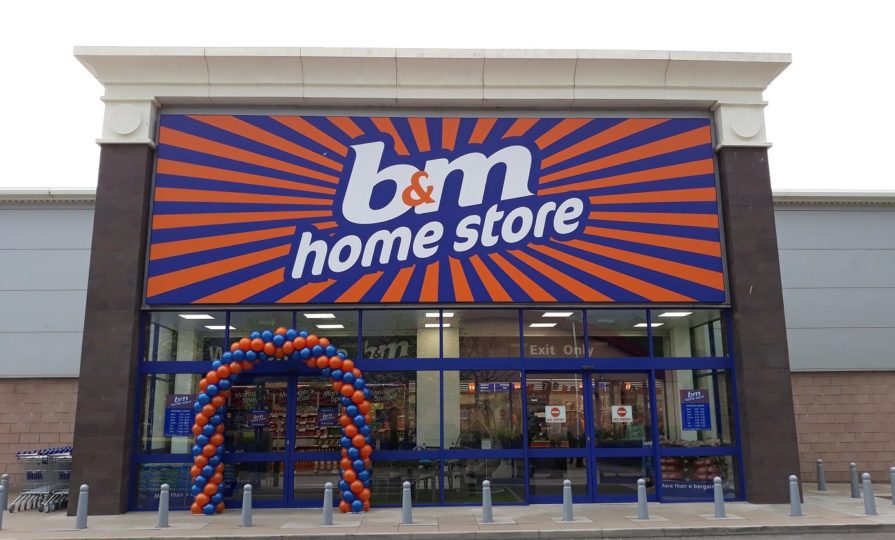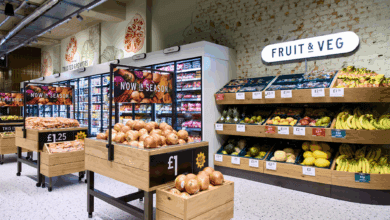Can generalist retailers survive in today’s retail environment?
With a fall in profits at B&M and struggles at Poundland resulting in a sale for a nominal fee, Retail Sector discusses whether there is any future for the general retailer in the current UK retail space

Register to get 1 free article
Reveal the article below by registering for our email newsletter.
Want unlimited access? View Plans
Already have an account? Sign in
Last month B&M posted results which saw its profit-before-tax fall 13.2% to £431m, with the company’s UK revenues falling 3.1% as a result of inflation. While the headline figures may appear troubling, the company remains optimistic about its future especially as it is embarking on an expansion drive. The bigger issue at play is the seemingly shrinking market for generalist retailers in the UK. Woolworths went out of business in 2015 and Wilko followed it in August 2023.
Poundland is the latest budget retailer to face problems, with the company planning to close around 150 stores following its £1 sale to private equity firm Gordon Brothers, which begs the question if there still space for generalist retailers in the current retail environment, especially as big supermarkets such as Tesco and Sainsbury’s increasingly encroach on this territory.
Changing competition
Traditionally, B&M’s main competitors would have been other general retailers such as Wilko Poundland or Home Bargains. However Emily Scott, retail analyst at Global Data, believes that the retailer is now facing competition from supermarkets like Tesco and Sainsbury’s which are looking to broaden their appeal.
If a consumer is going to a shop like Tesco or Sainsbury’s for a food shop, those supermarkets will sell pretty much everything that B&M sells, and the consumer is already in that location so they make the purchase there. So it’s that convenience aspect and the heightened competition from the grocers. You can also see with things like Sainsbury’s Aldi price match that the supermarkets are becoming really competitive on price. B&M’s core customer is very price conscious so that increased competition presents an issue for the company.
It could be argued that the company’s choice for its new CEO reflects this challenge, as new appointment Tjeerd Jengen has experience as an executive at Tesco. He also previously worked at Woolworths so he has experience of generalist retailers. By appointing Jengen, B&M will be able to lean on his experience at supermarkets to fight back against the increased competition.
Scott agrees stating: “I think he has such a wealth of experience on the FMCG side of things so I do think that will be really beneficial for the company moving forward, as he’ll be able to bring that knowledge to the company. I think it’s an exciting chapter for the company and I think he’ll be able to come in and restore some confidence, not only in consumers Rephrase to: ‘not only in consumers’, but in investors as well. He’s in a good position to be able to navigate the retail landscape that they’re going into.” Could a common supermarket scheme be the solution?
Bringing B&M into the modern age
One thing which Jengen may choose to borrow from his previous employees is a loyalty scheme. Tesco is famous for its clubcard and all the major supermarkets in the UK employ some kind of loyalty scheme allowing it to cut prices on certain products for members. Loyalty schemes like this also allow companies to track the purchases of customers and identify ways in which it can tailor its product offering to customers.
Scott believes that having its own version of a clubcard loyalty scheme would offer a number of benefits to the retailer. “A loyalty scheme would allow the company to gather insight and analytics from customer spending to be able to create targeted marketing campaigns, which is what Tesco and Sainsbury’s do, and they’re really good at sending you adverts for a product that you might have bought.
“As much as club cards and things like that are for giving good deals to customers it’s just as much about collecting data and using it to gather more targeted offerings and be able to tailor products to consumers better. Loyalty schemes give the company the data to be able to push customers to spend more, or to change their purchasing habits, to purchase maybe something a bit more premium, or to trade up slightly to a different product they offer.”
B&M may also be able to modernise its offering by introducing a click and collect scheme which would help it compete with the supermarkets as well as online giants such as Amazon. A large reason why generalist retailers are struggling is the proliferation of Amazon and other online marketplaces which allow people to order whatever they need without leaving the house. It also guarantees they get what they want. This means that one of the appeals of generalist retailers, convenience, is being eroded. A click and collect service would offer people the similar convenience as Amazon but would guarantee the quality of the product as it is not an online marketplace and potentially be more attractive to ethically conscious consumers.
B&M’s average transaction value would probably be quite low to have a fully-fledged online offering. So it can’t really compete on that aspect, but click and collect will give it the low overheads, but the company won’t have to deal with the full scale delivery model,” Scott says.
Is there still space for the jack of all trades?
The plight of Poundland can serve as a cautionary tale to B&M but it could also offer an opportunity. To some, Poundland represents the issues that generalist retailers face in the current retail landscape. As margins become overly squeezed by outside costs such as energy and business rates, companies that put low prices as a pillar of their offering are struggling as prices can only go so low. To others, Poundland cutting stores and taking cost cutting measures presents an opportunity to B&M as it continues to expand rapidly. It must be remembered that B&M acquired a number of stores from Wilko when that company went under so it has previous for taking advantage of the failure of its competitors. B&M may be able to take some of Poundland’s market share if it is clever with its offering.
Scott believes that before worrying about taking advantage of Poundland’s troubles, B&M should focus on its own offering to make sure it thrives. “I do think before jumping onto Poundland’s customer base, B&M needs to focus on its core FMCG categories and what they offer as a company, making sure that they’re stocking brands that everyone wants at low prices.
Obviously Poundland’s customers will be looking to shop elsewhere but they could go to Tesco, they could go to Sainsbury’s, they could go to Home Bargains, it is going to be whoever has the lowest prices. If B&M can stay competitive and do what they do really well it could be an opportunity, but if they can’t do that better than others it could be a warning.”
Overall, Scott believes that the future for B&M is bright so long as it recognises the challenges it is faced with and knows how to overcome them. She believes that the hiring of Jengen is positive and believes that he joins them at a good time for the company. However, if B&M does not heed the warnings it could be squeezed out by the supermarkets.







